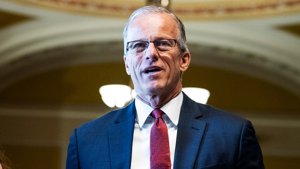
GOP Divides Over SALT Cap in Trump Budget Bill
GOP faces internal clashes over SALT cap and tax hikes as Trump’s budget bill nears House vote.
Tax Policy Sparks Intra-Party Tensions
House Republicans remain divided over tax policy as they finalize President Donald Trump’s comprehensive “one big, beautiful bill.” The latest source of tension involves proposals to raise the top income tax rate in exchange for expanding the state and local tax (SALT) deduction cap, a measure viewed by some as critical for GOP lawmakers representing high-cost-of-living districts.
Rep. Nick LaLota, R-N.Y., suggested over the weekend that restoring the top tax bracket to 39.6%—up from 37%—could generate $300 billion in revenue. This, he argued, would help offset the costs of raising the SALT deduction cap, which is currently set at $10,000 due to Trump’s 2017 Tax Cuts and Jobs Act (TCJA). “It’s a fiscally responsible move that reflects the priorities of the new Republican Party,” LaLota wrote on X, asserting the plan would protect working families without raising taxes on the middle class.
However, conservatives from lower-tax states sharply opposed the idea. Rep. Ralph Norman, R-S.C., a member of the House Freedom Caucus, rejected the proposal outright, saying, “More taxes don’t make sense to me.” He argued that raising taxes on high earners to address policy shortfalls in states like New York and California is unfair and economically counterproductive.
Leadership Says No to Tax Increases
The current legislation proposes increasing the SALT deduction cap to $30,000. But many Republicans in the House SALT Caucus, including LaLota, believe this figure still leaves middle-class families short-changed, particularly in districts like Long Island where property taxes often exceed $15,000 annually.
“On [Long Island], $250K isn’t rich—it barely covers the basics,” LaLota said. “My party’s $30K cap proposal only makes 4 in 5 households whole. That’s not enough.”
Despite such concerns, party leadership signaled this week that tax hikes on high-income earners would not be included in the final version of the bill. House Speaker Mike Johnson, R-La., reaffirmed the party’s traditional stance during a recent interview, stating, “I’m not in favor of raising the tax rates, because our party is the group that stands against that.”
The internal debate reflects the broader balancing act House Republicans face as they advance Trump’s legislative priorities through the budget reconciliation process. The approach enables Republicans to pass the legislation in the Senate with a simple majority, bypassing the need for Democratic support, provided the bill remains confined to budgetary matters.
Trump’s bill includes wide-ranging reforms spanning taxation, immigration, energy policy, defense, and efforts to rein in the national debt. With a self-imposed deadline looming, GOP lawmakers are working to unify around a final package that can reach the president’s desk by July 4.
While disagreements over SALT and tax rates remain a stumbling block, the party appears poised to advance the bill without including controversial rate hikes. However, the diverging interests within the GOP—between moderates fighting for local relief and conservatives resisting tax increases—underscore the challenges of forging consensus within a broad ideological coalition.






